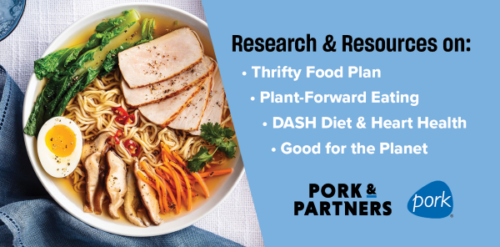Industry-funded study of the week: Pork and handgrip strength!
Charles Platkin sent me this article from Food Manufacturing: “Eating pork linked with better handgrip strength, industry group says.”
I quickly found the The Pork Board’s press release.
And went right to the source.
The study: Jung A-J, Sharma A, Chung M, Wallace TC, Lee H-J. he Relationship of Pork Meat Consumption with Nutrient Intakes, Diet Quality, and Biomarkers of Health Status in Korean Older Adults. Nutrients. 2024; 16(23):4188. https://doi.org/10.3390/nu16234188
Objectives: We evaluated the association between pork meat consumption and nutrient intake, diet quality, and biomarkers of health among older adults (age ≥ 65 years) in Korea.
Methods: Our analyses utilized dietary and health examination data from the 2016–2020 Korean National Health and Nutrition Examination Survey (n = 2068).
Results: Pork consumption was associated with a higher intake of energy and [some] nutrients…Diet quality was modestly higher among…pork consumers. Differences in biomarkers were clinically irrelevant…Handgrip strength was slightly higher.
Conclusions: In Korean older adults, pork consumption may contribute to a higher intake of energy and most nutrients, improved diet quality scores, higher vegetable intake, and small improvements in health biomarkers.
Funding: Funding for this research was provided through an investigator-initiated educational grant from the National Pork Board (#22-056) to Think Healthy Group, LLC. The sponsor had no role in the design, analysis, interpretation, or presentation of the data or results. The authors and sponsor strictly adhered to the American Society for Nutrition’s guiding principles for private funding for food science and nutrition research. M.C. did not receive salary support or consulting fee from this grant.
Conflicts of interest”: T.C.W. has received scientific consulting fees as a current member of the Science Advisory Board for the National Pork Board. He has also received other investigator-initiated educational research grants from the National Pork Board. All other authors have no conflicts of interest to declare.
Comment: Applause to Food Manufacturing for noting the industry source in its headline: “industry group says”. Note the effect size: “small improvements in health biomarkers.” Nevertheless, the Pork Board thought it was worth a press release—it had paid for the study, after all. The Pork Board runs a USDA-sponsored checkoff program; it collects fees from pork producers and uses them for purposes like these. Worth it? A lot of pork producers don’t think so, but the USDA insists and manages it through its Agricultural Market Service. I wonder if the new administration will take interest in such programs…?



